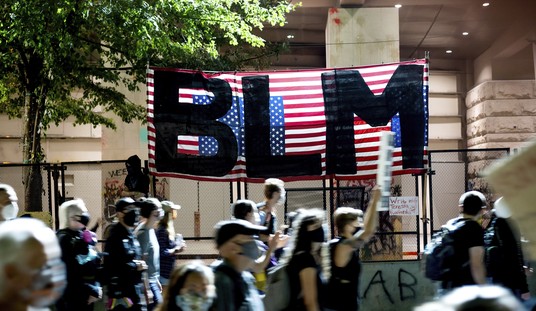The Iraqi parliament has spent its time this week in futile dithering, but Prime Minister Nouri al-Maliki hasn’t been idle. Widely expected to be dumped from his position once the parliament finally acts, Maliki has attempted to shore up his position with a couple of long-shot calls. First, Maliki has extended an “amnesty” to Iraqi tribal leaders and militias that took up arms against the state, as long as they band together with him to oppose ISIS:
Prime Minister Nuri al-Maliki offered a general amnesty Wednesday in a rare conciliatory move to undercut support for militants whose offensive has overrun swathes of territory and threatens to tear Iraq apart. …
Maliki’s surprise move, made in his weekly televised address, appeared to be a bid to split the broad alliance of jihadists, loyalists of executed dictator Saddam Hussein and anti-government tribes that has captured large chunks of five provinces, displacing hundreds of thousands of people.
“I announce the provision of amnesty for all tribes and all people who were involved in actions against the state” but who now “return to their senses”, excluding those involved in killings, Maliki said.
It was not immediately clear how many people the amnesty could affect, but analysts have said some form of political reconciliation will be necessary to convince Sunni Arabs angry with the Shiite-led government to turn against their co-religionists and jihadists.
The tribes and militias didn’t align with ISIS just because of their legal status with Baghdad, though. They balked at cooperating with Maliki’s government when it became clear years ago that Maliki intended to marginalize them. He purged the military and locked out Sunnis from key government positions, which broke the fragile political detente after the Anbar Awakening. The amnesty may be too conditional and too late to woo them back once again, even if it’s offered on the broadest possible terms.
Maliki also decided to work around the US after our refusal to provide direct military assistance against ISIS. Guess who Maliki called instead?
This makes sense from a strategic perspective for Vladimir Putin. He’s already supporting Bashar al-Assad in Syria and Iran, two key allies of Maliki’s at the moment. Coming to his rescue allows Putin to complete the Shi’ite hat trick and tweak the US at the same time. It does, however, intensify the sectarian nature of this conflict and potentially reduces the chances of getting any real response to Maliki’s amnesty offer.
The Kurds, meanwhile, are busy setting up their own shop, as this video report from AP demonstrates. They are fortifying their borders and making claims on disputed territory in order to set the parameters for an eventual declaration of independence:
As Islamic extremists seek to sweep away borders in their advance across the Middle East, Kurds in northern Iraq appear to be in the process of digging a new one, asserting their claim to hotly disputed territory and expanding their semi-autonomous region in a bid for greater autonomy or outright independence.
The emerging frontier of sand berms, trenches and roadblocks is being built to take in areas Kurdish fighters seized as Sunni militants led by the Islamic State of Iraq and the Levant swept across northern Iraq last month, routing the armed forces of the Shiite-led government in Baghdad and raising fears the country could be torn in three.
Kurdish forces say they assumed control of the disputed territory in and around Kirkuk — a major oil hub — to prevent it from being taken over by the Sunni insurgents as Iraqi troops melted away. They say the defense of the 1,000-kilometer (600-mile) frontier is necessary to prevent the militants, who have declared a transnational Islamic state straddling the Syrian-Iraqi border, from advancing further.
“This is a security measure. We are dealing with a serious threat,” said Falah Bakir, the Kurdish region’s top foreign policy official. “We are neighbors to a terrorist state — the Islamic State — and we have to take measures to ensure our safety.”
But the barriers, hastily built over the past few days, are also defining the borders of a possible future Kurdish state, and laying the groundwork for a conflict with Baghdad over Kirkuk, which has a mixed population of Kurds, Arabs and Turkmen.
At the moment, Iraq has its hands full with ISIS. Kurds know that they have no time to fight one of the few forces willing to fight directly against their enemy, especially the Peshmerga with its much higher morale and cohesion than Iraqi forces. It’ll be years before Baghdad is in position to seriously contest the sovereignty of Kirkuk, if it ever is.







Join the conversation as a VIP Member